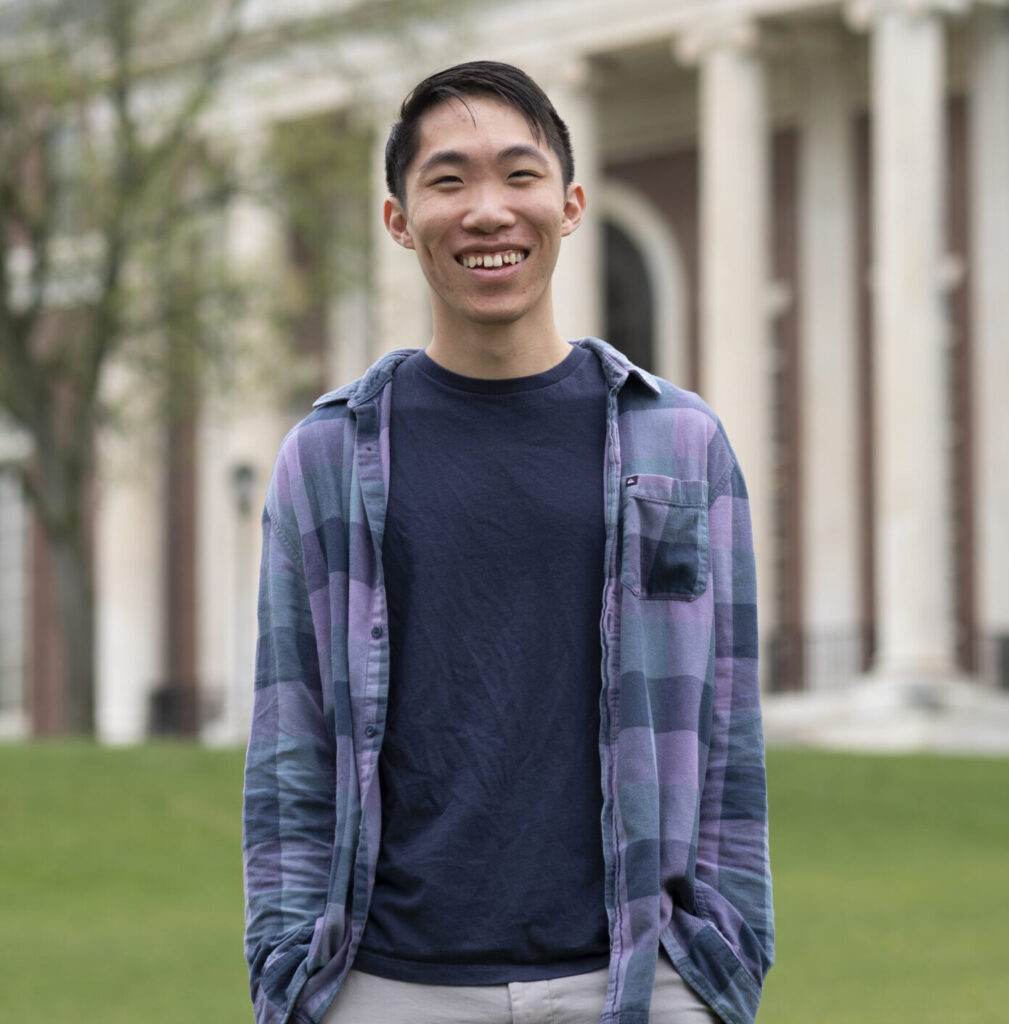
Remy Fu ’26
Remy Fu ’26 has always wanted to be a teacher.
“My mom jokes that I used to come home from kindergarten and make a lesson for my sister and her friends,” he laughs.
In his student-teaching work, he particularly loves seeing students experience “lightbulb moments.”
“I like being able to break down the material and make it relatable,” he says. “Seeing a student ‘get it’ is really rewarding.”
Fu has had plenty of lightbulb moments, too, including at Wesleyan where he is double majoring in biology and education studies. He says he knew when he visited Wesleyan that it was the place for him.
“I loved how motivated students were,” he says. “I could tell people were doing things because they wanted to and not simply to pad a resume. Every single student I met was pursuing such diverse interests; their major might be totally unrelated to their activities or the job they want to pursue.”
In his time on campus, Fu has taken several courses with Professor Rachel Besharat Mann; one, on literacy in education, was designed to help Wesleyan students learn to critically examine media and “read the world”. He also took a community-engaged learning course with Professor Amy Grillo that emphasized the value in partnerships between Wesleyan and local community members; Fu works as a program coordinator at an after-school program in Middletown, so the discussions were particularly meaningful.
“We talked about the ethics of service work and how we as an institution need to better serve communities,” he says.
Since last spring, Fu has been working with Professor Alisha Butler to research how K-12 school family engagement and security policies—like the requirement of a federal identification card or bars against people with criminal records—can indiscriminately prevent some children’s caregivers from engaging and participating in their children’s educations.
This summer, Fu is working as a teaching fellow at Breakthrough Silicon Valley, teaching two sections of 10 rising 8th graders science using a project-based learning and artificial intelligence (AI) literacy curriculum (in a recent class, they discussed how humans pass on their biases to AI models) and an elective on filmmaking.
Wesleyan, Fu says, “has made me a better thinker.”
“In my classes, it’s less about a professor saying, ‘I’m the expert,’ and more about providing some context and asking students, ‘What do you think about this?’” he says. As a result, “I’m better able to articulate my thoughts and respond critically to other perspectives.”